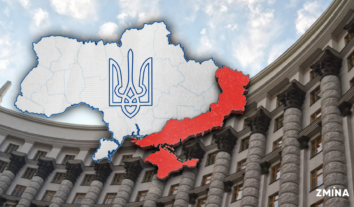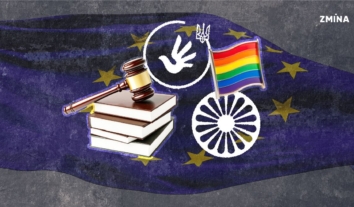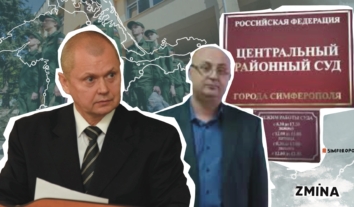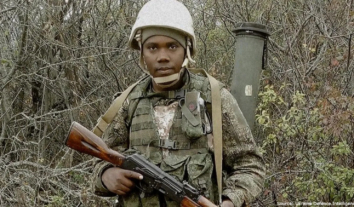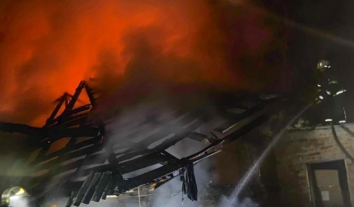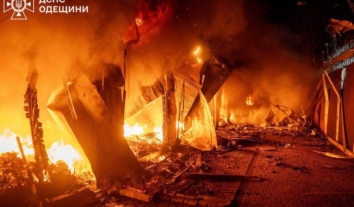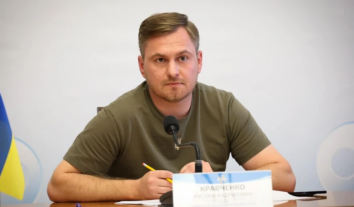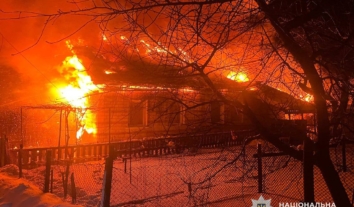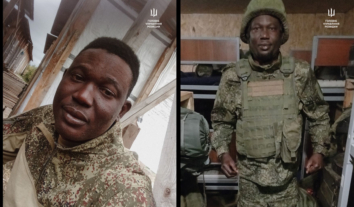Social isolation, ignoring needs and multiple discrimination: what Ukrainian Roma face when fleeing war
Roma have always been one of the most vulnerable ethnic communities in Ukraine, but the full-scale war has further worsened their situation. Many Roma families remained in the temporarily occupied territories or in the war zone due to lack of money and the ability to evacuate. Roma who have left, but do not have documents, cannot receive IDP status and humanitarian aid. The war also affected Roma children: they do not always have devices for distance learning using digital technologies.
ZMINA talked about these problems and the search for their solution with internally displaced Roma, Roma activists, as well as representatives of state institutions.
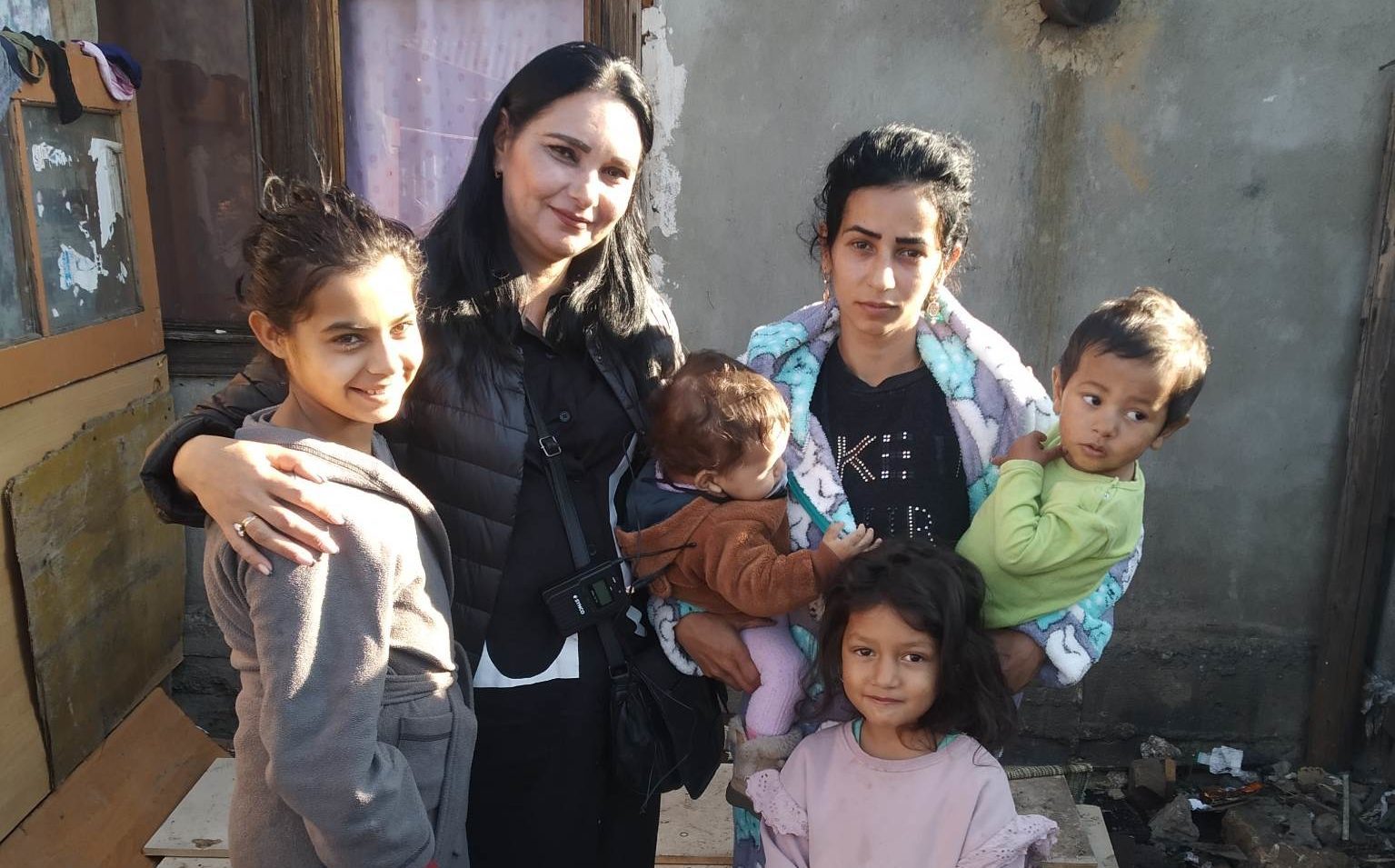 Mediator Rada Kalandiia in the Roma settlement in Mukachevo
Mediator Rada Kalandiia in the Roma settlement in MukachevoI covered my four children and began to pray that God would take me and save them
On February 24, the quiet life, upbringing of four children and the peaceful life of the Roma woman Kateryna (name changed for security reasons), who lived in Melitopol, turned into nights in a bomb shelter, constant fear for the lives of her children and futile attempts to find safety. War had come to her home in the first days of a full-scale invasion.
“When the constant explosions started, we ran to the school and hid in the basement there. There was neither food nor water. I can manage it, but how to explain it to children? We sat for four days there. They slept in their clothes. I couldn’t even run home because of the shelling. In addition, one of the children had a fever due to excitement, up to 39–40°C. When everything quieted down, we were able to go out. The children were exhausted, hungry, pale”, – the woman said.
The city was occupied in a few days. When the explosions died down, the family returned home to shop, change clothes and have some food. Hearing the shots, the children went to the door and stood ready: “Well, letʼs run to the shelter?”. This happened every night. Kateryna lived with her children in the occupied city for four months. Then they decided to leave, but they were stopped halfway and turned back due to gunfire. But the woman did not give up trying to evacuate and in a few days she reached Zaporizhzhia with her children by hitching rides.
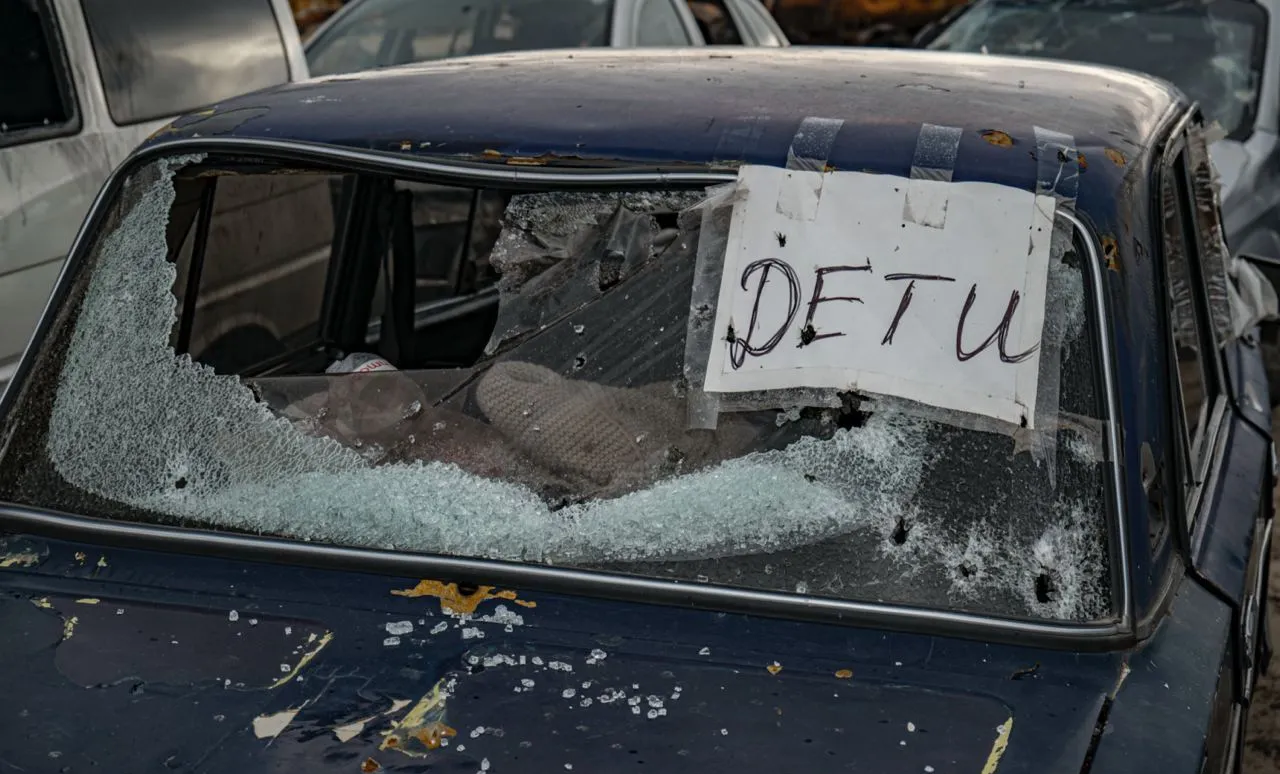 Illustrative image. Photo: Obozrevatel
Illustrative image. Photo: ObozrevatelThe road from Melitopol to the regional centre at that time cost 5 thousand hryvnias per person (before the full-scale war – 200 hryvnias. – Ed.). The money for the woman’s evacuation was provided by the Roma Women’s Fund “Chiricli”. She paid for herself and her eldest daughter. Others are still quite little, so they could be held on the laps.
“Actually, I still don’t understand how we survived. We came under terrible shelling, the windows in the car were smashed inwards and fell directly on us. The driverʼs wheel flew off. I thought we were going to die. I covered my four children and began to pray that, if our day and time came, God would take me and save them”, – Kateryna recalls the evacuation trip.
After the family managed to reach the regional centre, they were placed in a kindergarten for two weeks, where they were provided with everything they needed. Then the woman had to look for another temporary accommodation, she was helped in this by Roma mediators. In the end, she added: “I am ready to live with my children even on the street, if only not in the occupation”.
Kateryna’s story is not unique. According to the European Roma Institute for Arts and Culture (ERIAC), since February of this year, about 100,000 Ukrainians of Roma origin have been forced to leave their homes. Half of them went abroad. Roma families – mostly women with children – tried to leave Zaporizhzhia, Kherson, Kharkiv, Donetsk and Luhansk regions to other countries, but not all of them were able to become refugees. After all, many Roma did not have documents or money. And someone simply did not have time to leave the territories which were occupied.
Roma women are oppressed because of their vulnerable social status, as well as ethnicity
In August of this year, the Office of the Ukrainian Parliament Commissioner for Human Rights created a separate department that works on the issue of national minorities and indigenous peoples. Therefore, it became a step on the way to involve the state in the protection of Roma rights.
“The approximate number of Roma who lived in Ukraine before the full-scale invasion, according to various estimates, ranged from 200 to 400 thousand. Almost half of them are women. And it is they who are constantly subjected to multiple discrimination. They are oppressed because of their vulnerable social status, as well as because of their ethnicity. It is even more difficult for pregnant women, persons with disabilities and IDPs”, – says Elvina Kurtaliieva, the deputy director of the Department for Monitoring Compliance with Equal Rights and Freedoms, the Rights of National Minorities, Political and Religious Views of the Secretariat of the Commissioner for Human Rights of the Verkhovna Rada of Ukraine.
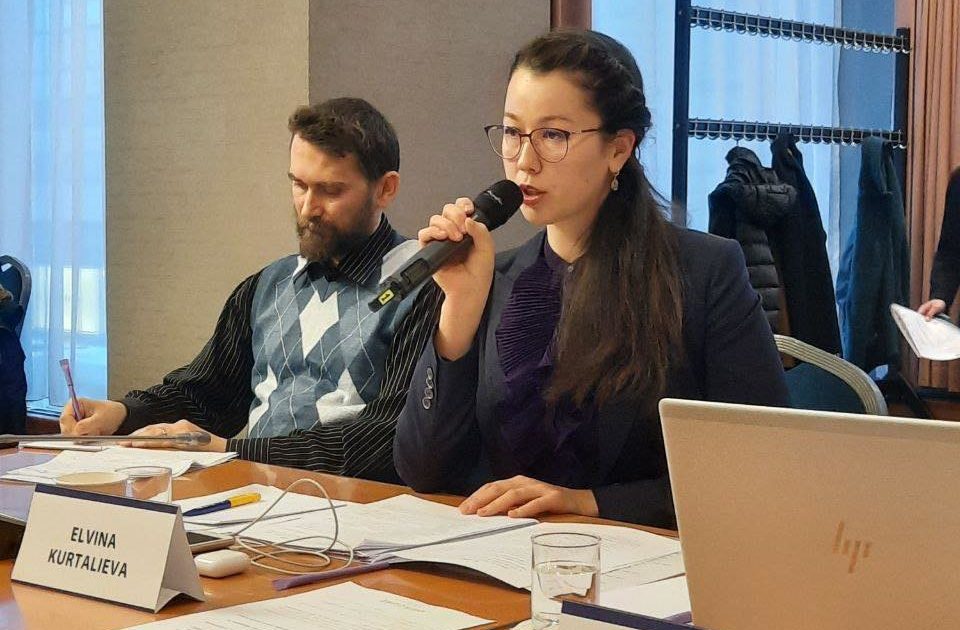 Elvina Kurtaliieva at the Second Forum of Roma Women of Ukraine
Elvina Kurtaliieva at the Second Forum of Roma Women of UkraineAccording to Roma mediators, with the increase in the displacement of Roma, the negative attitude, violence and oppression against them increased. For example, facts of discrimination against Roma outside of Ukraine were recorded in the Czech Republic, where, according to the Office of the Ukrainian Parliament Commissioner for Human Rights refugees of Roma origin were denied temporary shelter, and in other cases, they were evicted from a dormitory without warning the day after settling in.
“In Poland, Roma are often not allowed into refugee reception centres, and they are also kicked out of train stations under the pretext of preventing theft. In Romania, Roma also felt prejudiced at the refugee registration centre. In addition, there is a well-known case when in Germany Roma were accused of stealing food that they took for a child in a canteen. Such situations are not observed everywhere, but they still exist”, – Kurtaliieva emphasises, referring to the data of Roma mediators who worked abroad.
It is also known that in September, the employees of the Office of the Ukrainian Parliament Commissioner for Human Rights visited places of compact residence of Roma in Ukraine and held individual meetings with Roma women of Zakarpattia, Lviv and Odesa regions. During the monitoring, they recorded such problems in the implementation of Roma rights as refusal of employment due to ethnic origin, unsatisfactory living conditions and isolation from social services, limited provision of medical services, improper documentation and ineffective involvement of children in the educational process in a distance format.
From those terrible stories that Roma families told us, you could write a whole horror book
After the start of the full-scale invasion, a significant number of public organisations changed the directions of their work and began to deal with solving “war” problems – providing humanitarian and material aid, finding housing for displaced persons, etc. Roma organisations are no exception.
“Before the war, our organisation dealt with the issue of education of Roma, in particular, it conducted courses for rapid development of professions for Roma women. But the morning of February 24 changed the lives of all citizens of Ukraine, regardless of their nationality and religion. We didn’t know how to save our family’s life, where to run and what to do”, – says Larysa Domchenko, head of the Zaporizhzhia Roma Center “Lacho Drom”.
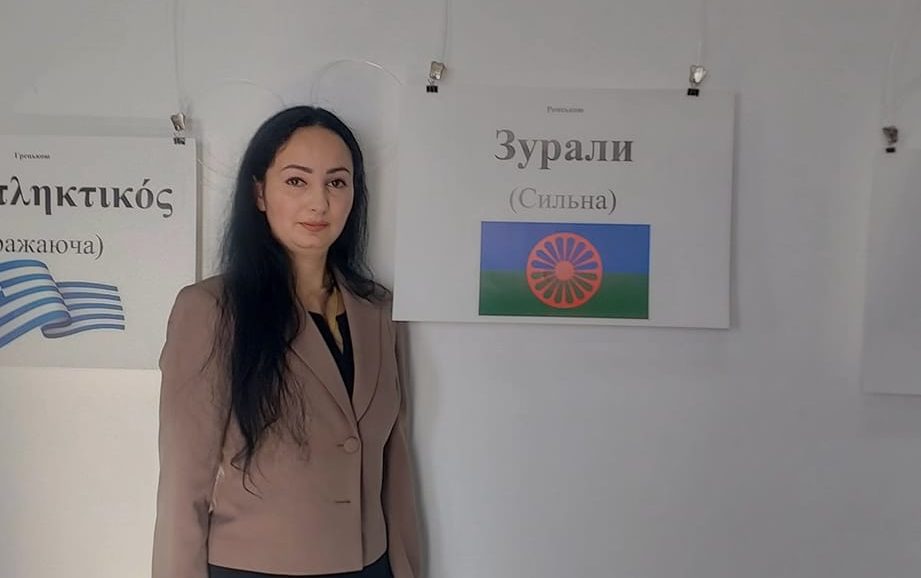 Larysa Domchenko at the Mother Language Day event
Larysa Domchenko at the Mother Language Day eventLarysa lives with her family in Zaporizhzhia. Her husband has the right to leave the country because he takes care of his sick mother, so the couple thought about moving abroad. However, such thoughts were quickly rejected: Roma and beneficiaries who received help from the Roma organisation asked Larysa not to leave.
“Confused people called us asking for help. They did not know what to do and how to live on. At that moment, my husband and I realised that we are now responsible for our people and simply have no right to abandon them in this difficult situation. We urgently needed to pull ourselves together and not despair”, – she explains.
The couple stayed in Zaporizhzhia and started helping Roma in need of support almost from the first days of the war. Thus, the “Chiricli” foundation transferred humanitarian aid, and Larysa distributed it to Roma families who found themselves in difficult life circumstances.
“We provided emergency aid – food, medicine and hygiene products. Every day we met Roma families leaving the temporarily occupied territories and looked for them a place to live. Our organisation was a guarantor for the landlords who provided accommodation to Roma immigrants”, – says the head of “Lacho Drom”.
Local volunteers also provided significant help: knowing the needs of Roma who left their homes, they brought them sleeping bags, pillows, blankets and fast food.
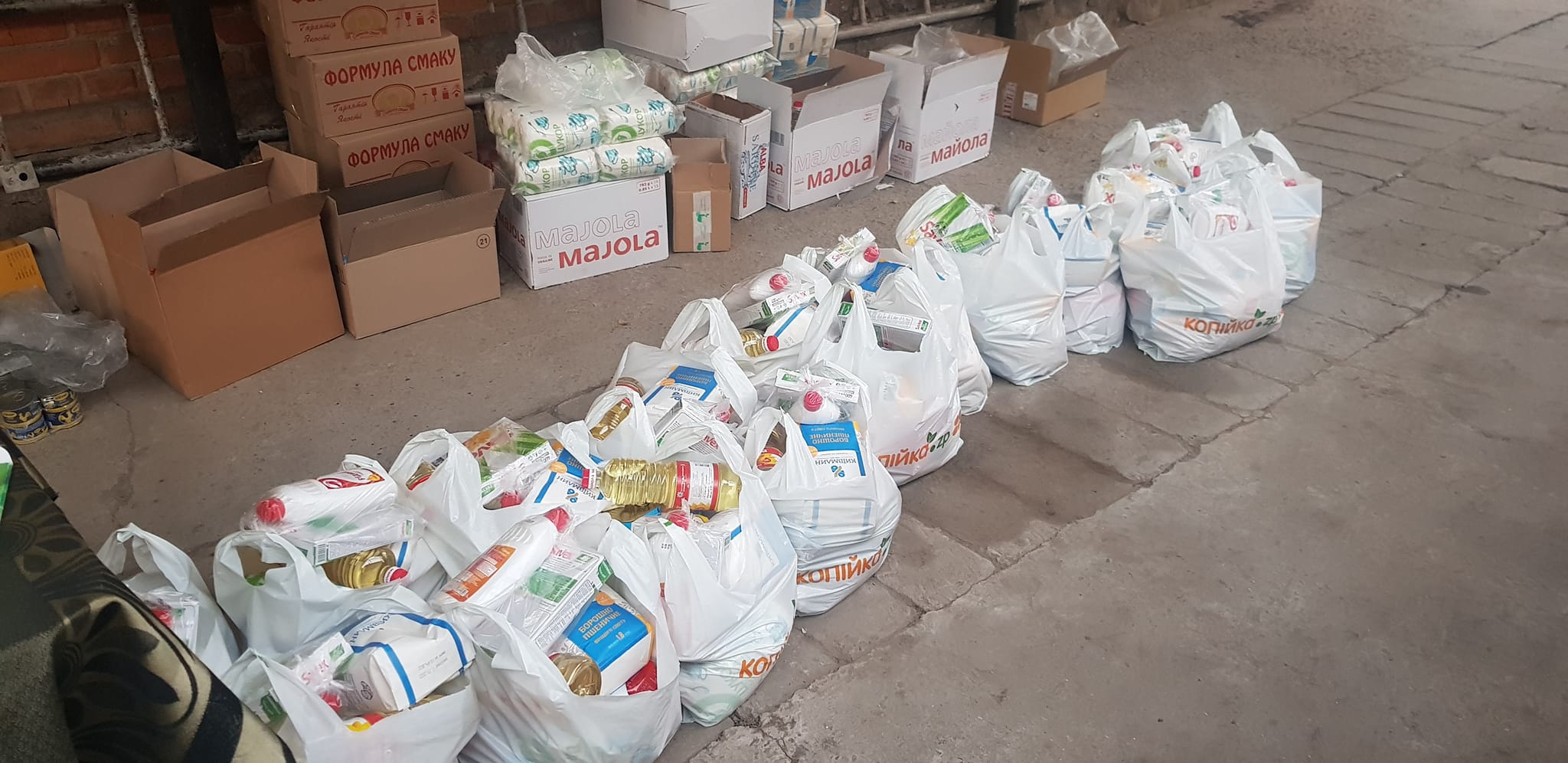 Humanitarian aid for Roma families of Zaporizhzhia
Humanitarian aid for Roma families of Zaporizhzhia“A whole horror book could be written from those terrible stories that Roma families told us. Russians came to one family living in an occupied city at night – they started looking for warm clothes and took all the food from the refrigerator. People were very scared. The occupiers left, and the next day the family tried to leave for the territory controlled by Ukraine. The Russians kept them at the checkpoint for a week, but they still let them through”, – says Larysa.
In total, during the ten months of the full-scale war, 319 Roma received various help from the “Lacho Drom” organisation. Some of those who left the occupation remained in Zaporizhzhia and live there now. Almost half went to the western regions or abroad.
The level of discrimination has increased significantly
Those Roma activists who themselves barely managed to “escape” from dangerous territories join in helping. So, in March, the head of the “Roma National Society “Romen” in Donetsk region”, Rada Kalandiia, tried to leave Vuhledar, in Donetsk region. The difficulties, in particular, consisted in the fact that it was necessary to persuade the volunteers to go to the basement, where Rada was hiding from the shelling together with her aunt, who is a person with a disability and therefore could not reach the meeting place. In the end, the drivers agreed to drive up and the evacuation took place.
“I received many phone calls from the community I worked with. They said that they could not evacuate because the Roma were not allowed on the trains: the conductors closed the doors “in their faces” precisely because of their nationality. The level of discrimination has increased significantly”, – the woman states.
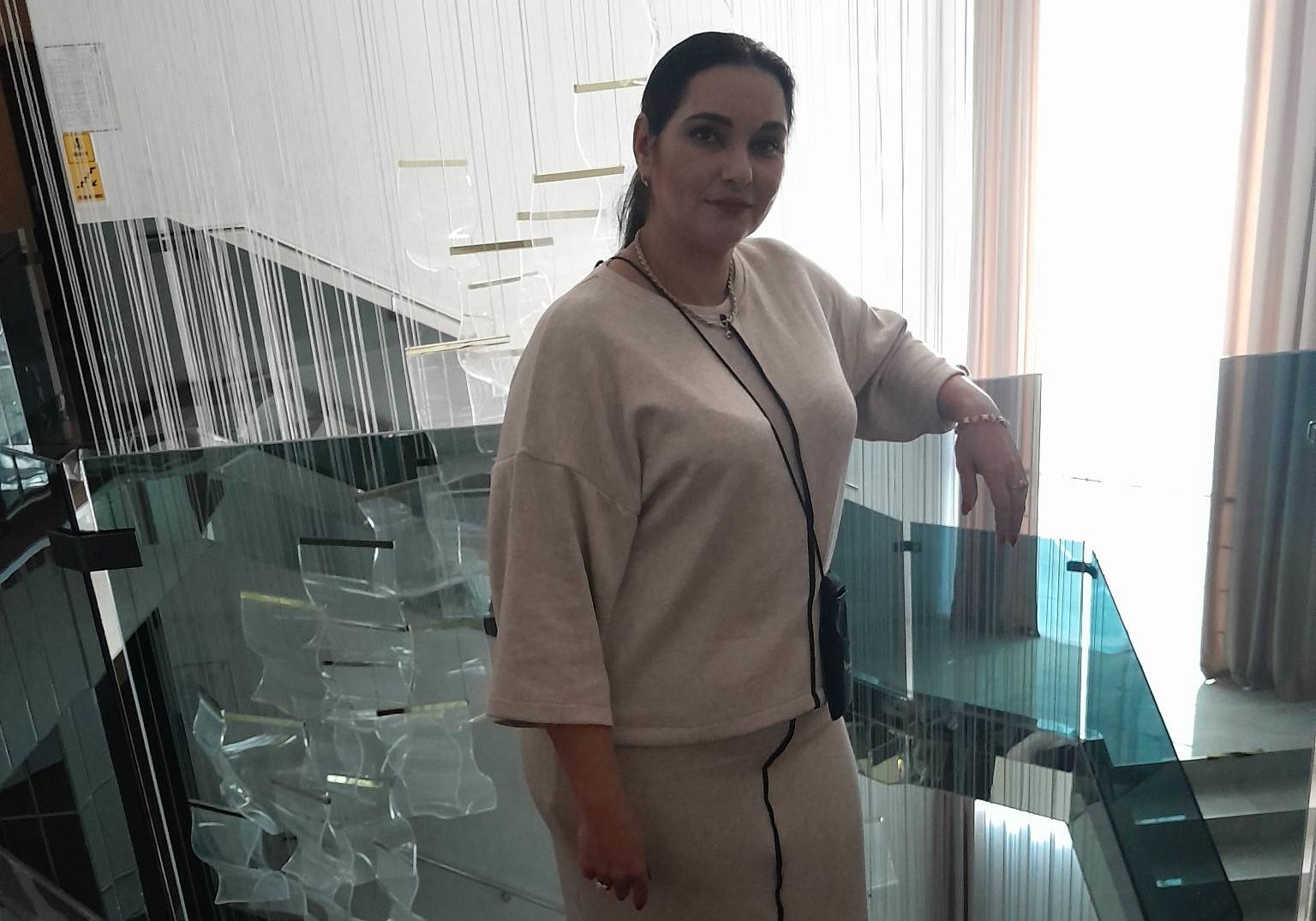 Roma mediator Rada Kalandiia
Roma mediator Rada KalandiiaRada Kalandiia emphasised that today, more than ever before, the problem of the lack of documents among Roma has become acute. According to her, passport offices, civil registration and migration services do not want to find compromises even in spite of the war and complicate the procedure of obtaining documents in every possible way – they demand to do everything in person, without the use of digital technologies (even when the application can be filled out online). State institutions withhold information about simplified procedures and require personal presence.
As an example, the activist told about the case when a 25-year-old Roma woman, who only has a Ukrainian birth certificate, tried to get a passport. The woman’s parents live abroad, but the passport office required their personal presence to issue their daughter’s passport. A video call or other alternatives did not satisfy employees.
“People are in trouble, they freeze and die. We help each other and we want the government to respond. How can we expect non-discrimination from society if the government ignores our needs? No national minority suffers as much as the Roma. They go abroad because they can’t find housing and work here, because they don’t have documents”, – said Rada, emphasising the need to implement the Roma strategy.
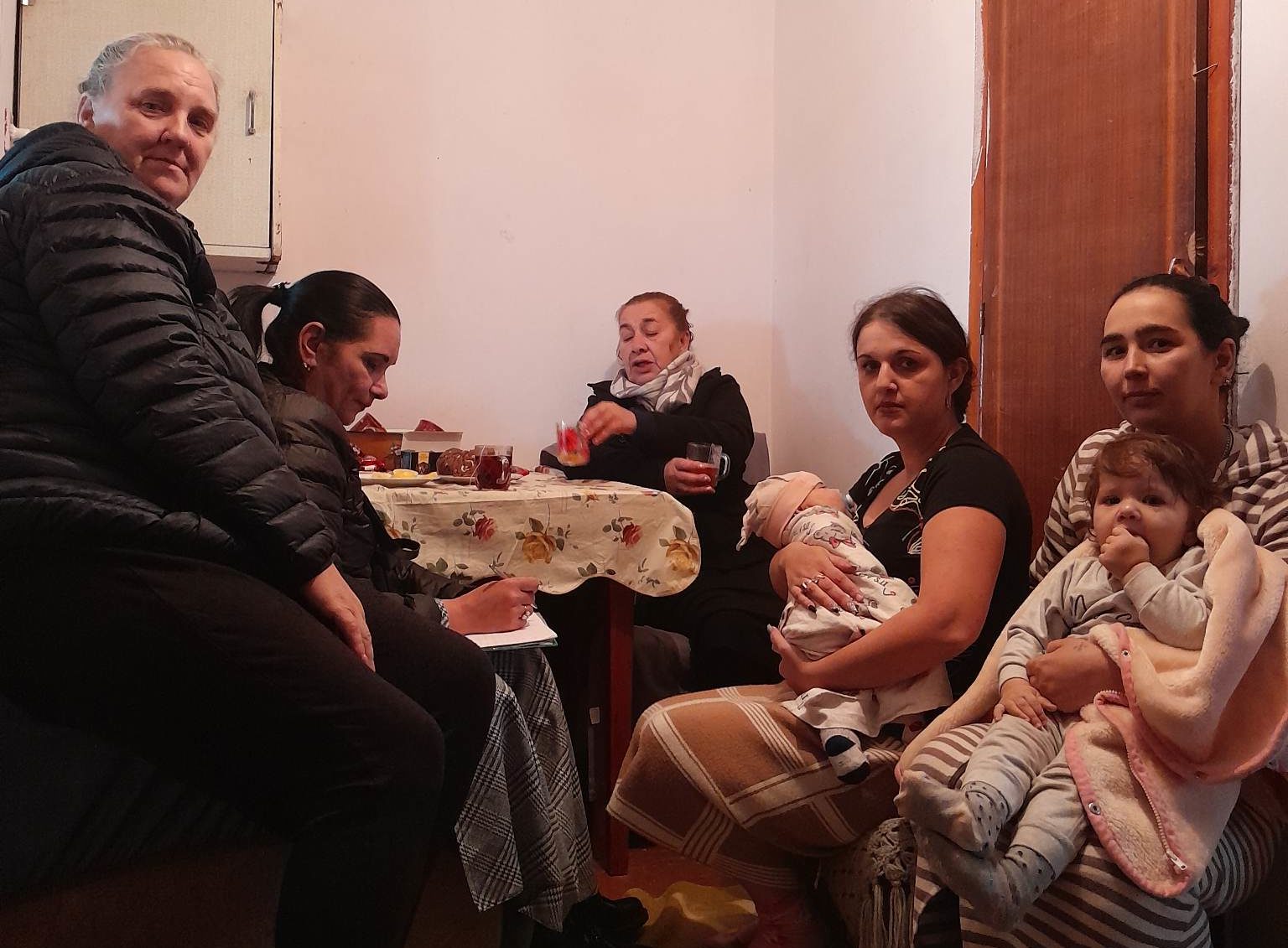 Rada Kalandiia with a Roma family, whom she helps as a mediator
Rada Kalandiia with a Roma family, whom she helps as a mediatorIt is noteworthy that the Cabinet of Ministers approved the Strategy for promoting the realisation of the rights and opportunities of persons belonging to the Roma national minority in Ukrainian society for the period up to 2030 back in July 2021.
It was supposed to cover such areas of work as legal protection and anti-discrimination, access to quality education, access to health care services, improvement of the quality of living conditions, employment, social protection, Roma culture, history, art and language.
However, the full-scale war made adjustments both in the life of the Roma and the work of human rights organisations, as well as in the implementation of the strategy itself.
Currently, human rights defenders recognize that the document needs to be revised taking into account the conditions of martial law. And given the discriminatory and biassed attitudes Roma face, the problems they face in finding employment, housing and education for their children, the strategy needs to work now, not after the war is over.


